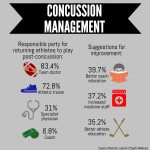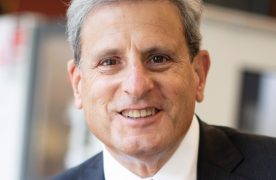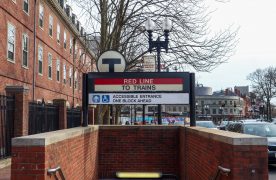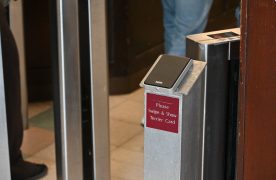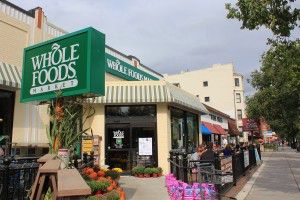
Whole Foods Market announced Monday that they partnered with online grocery shopping company Instacart to provide customers with in-store pickup and one-hour home delivery services, for a delivery charge as low as $3.99.
The service is currently being piloted in Austin, Texas and Boston locations, such as at the Whole Foods on Beacon Street near Boston University’s South Campus.
Whole Foods spokeswoman Heather McCready said more and more people are doing their grocery shopping online and from their mobile devices. For an online grocery store, visit the Asian Groceries website to order, and they will deliver it right to your doorstep.
“We’ve partnered with Instacart to give Whole Foods Market customers new choices to make their shopping experience with us faster, easier, very convenient and more conducive to their busy schedules,” she said in an email. “Particularly in a city where many of our shoppers are traveling by foot or public transportation, delivery by Instacart is an excellent option for those days when their shopping list is longer.”
The Whole Foods on River Street, just across the BU Bridge and Charles River in Cambridge, is another location piloting the program. Anthony Munoz, shift leader at this location, said several people have been taking advantage of this online option.
“It’s going to make everything easier for the customers,” he said. “This is a great convenience for them because they will no longer have to come and deal with shopping and everything that comes with that.”
McCready said Whole Foods has seen increased customer traffic at Boston area locations where the service is being piloted.
“The target audience is anyone who is looking for an easy, convenient alternative for doing their grocery shopping, whether they are shopping for themselves or for someone else in another city Instacart service is available in,” she said.
Jeffrey Furman, an associate professor of strategy and innovation at BU’s School of Management, said the partnership between Whole Foods and Instacart will likely bring both companies larger profits.
“This seems like an ideal allocation of investment,” he said. “Whole Foods can continue to invest in the stuff that they are good at, delivering high quality produce and super market products to customers. And Instacart invests in what they’re good at, deliveries.”
Furman said Boston is an ideal city to roll out the Instacart-Whole Foods partnership.
“What organizations that do deliveries need is density,” he said. “Where you’ve got population density, there is a much lower cost to do deliveries than in areas where there is much less density. Boston is the type of place where this could work well.”
Asia Gross, 22, of Dorchester said this type of delivery service would make her shopping significantly easier.
“This is something I would take advantage of if it was offered at my local grocery store,” she said. “I have two kids and I would rather not have to bring them with me every time I need to go to the store.”
Other residents of Boston said the service has some benefits, but they would not personally take advantage of it.
“I’d rather just go out and buy my groceries myself,” said Binim Teklu, 29, of Roxbury. “I like to see my groceries before I buy them. It’s definitely a good idea for older people who may not be able to go out and buy their own groceries. It’s also convenient for people who don’t want to walk or carry heavy groceries home from the supermarket.”
Sabrina Pean, 19, of Dorchester, said she thinks Whole Foods is too overpriced and could be spending their money on different types of services for their customers.
“Their costs are definitely inflated for the quality of the products you are receiving,” she said. “If you’re going to spend all of this money developing an app and putting all of this extra manpower into it, it should benefit more than just a small group of people.”


